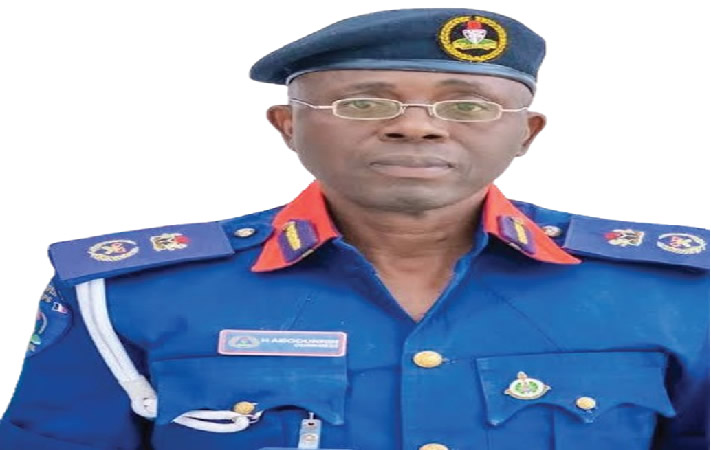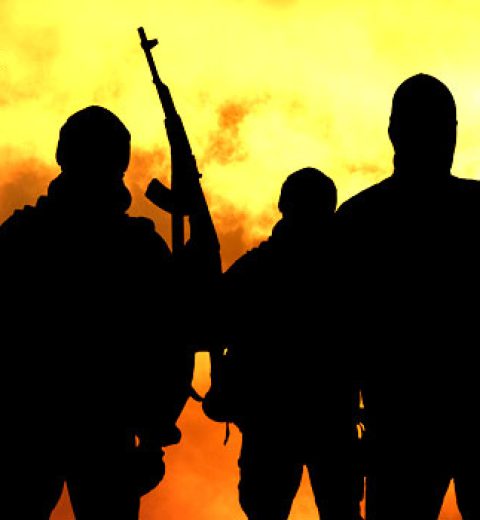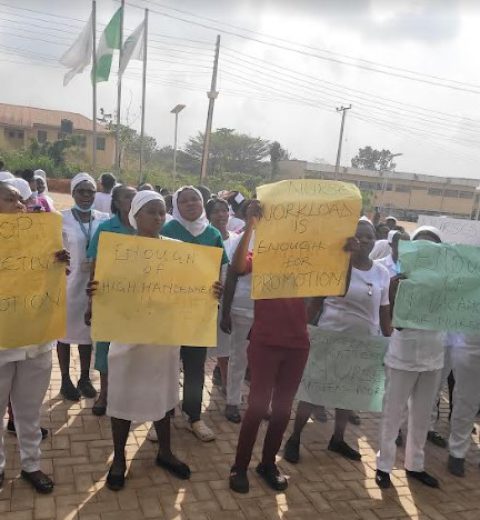
The Commander of the National Safe School Response Coordination Centre, Hameed Abodunrin, discusses the increasing frequency of lethal assaults on schools in Nigeria and provides updates on the progress of the N145 billion safe school project.
Your center was established by the Federal Government on February 20, 2023, with the mandate to coordinate safety and security responses to violence in schools and their surrounding communities. It’s been over a year since its inception. How has the journey been?
I must say, it’s been a challenging journey. We encountered difficulties, especially at the beginning when the necessary resources weren’t immediately available after the center’s establishment in February. It wasn’t until late last year that resources began to flow into the center. Initially, the Civil Defence was called upon to provide initial support, with the expectation that resources would eventually arrive to facilitate the center’s operations.
The Civil Defence provided the building and equipment for the Command and Control Centre during its establishment phase. However, towards the end of last year, the Federal Government mobilized resources not only for the center and the Civil Defence but also for other stakeholders, including the military, the Department of State Services, and the Ministry of Education. This collective effort reflects the understanding that all these stakeholders have roles to play in the Safe School Project.
Despite the challenges, I’m pleased to say that we’ve been managing well, and our challenges have been within manageable limits.
Are you suggesting that when the Federal Government established the center in response to the increasing attacks on public schools in the country, there was no initial provision made for its launch?
Yes, indeed, there was no provision for the center’s initiation. However, it’s important to note that safety and security are not novel concepts. Various agencies have long been involved in security functions. Globally, the Civil Defence is recognized for its role in providing security education to the public, coordinating emergency responses, and more. Issues pertaining to school safety naturally fall within this realm.
It’s worth remembering that in 2019, a national security strategy designated the Civil Defence as the lead agency responsible for safeguarding physical national assets and infrastructure. However, due to the challenges faced by schools, particularly public ones, they were once again identified as critical national assets requiring protection.
So, there wasn’t any initial funding or start-up grant provided; rather, there was an anticipation of forthcoming resources. Up to that point, one of the center’s tasks was registering all schools, among other activities, even before resources began arriving. Additionally, there was a pressing need for the center to commence training personnel on various aspects of safe school practices.
During which months precisely did your center receive the necessary provisions from the Federal Government late last year, and what form did these provisions take?
I believe it was around August and September. As for the second part of your question, funds were allocated to the center.
How much was allocated?
Specifically, I may not be able to provide an exact figure of the allocation we received. However, for the year 2023, a total of N15 billion was budgeted. It’s important to note that there has been discussion among agencies regarding a funding gap. The allocated funds are intended for advocacy and personnel training. Each agency has its designated share. Upon assuming office in January 2024, I had to delve into records to ascertain the allocated funds and other pertinent details.
So, you’re indicating that N15 billion was allocated for the center in 2023?
I mentioned that N15 billion was budgeted for the safe school project in 2023. This allocation wasn’t solely for the center; rather, it encompassed all stakeholders involved in the project. This includes the military, Army, Navy, VIA, DSS, NPF, and others. Therefore, the center serves as a coordinating hub for receiving actionable information and disseminating it to the relevant agencies for action. Additionally, a portion of the allocated funds was directed to the Ministry of Education for their training initiatives. In essence, the N15 billion allocation was not solely for the center but for the broader safe school project.
What was allocated for safe schools from 2023 to 2026 constituted a four-year project aimed at resolving safety issues in schools by 2026. A total of N104 billion was earmarked to be distributed over these four years. However, due to resource constraints, only N15 billion was released in 2023. As of now, there has been no allocation for the current year.
Did the delay in receiving necessary provisions from the government affect the center’s performance in 2023?
Certainly! The intended activities for 2023 primarily involved advocacy, personnel training, and equipping the center, not only at the national level but also in establishing centers at the state level. However, the expected funds did not arrive as anticipated. Even when funds were eventually allocated to the center, the release was not 100 percent. It’s common knowledge that there’s often a disparity between budgeted amounts and actual funds disbursed. Consequently, the center couldn’t fully execute all planned activities for that year. Nevertheless, they managed to conduct training sessions and engage with communities up until January 2024. I’m aware that other agencies have also commenced their training initiatives.
Despite the delayed financial provisions, did the center manage to train the intended number of personnel last year?
Yes, as I mentioned earlier, the recent focus on school safety arises from the ongoing challenges with kidnappings and attacks by bandits on schools. However, it’s important to note that the standard procedures for protecting schools and their surrounding communities have always existed. The difference now lies in the need to increase the number of personnel involved in these efforts and enhance training for specific roles related to the project.
Historically, there wasn’t much emphasis on school protection, especially in the past. Therefore, we simply scaled up existing measures. Regarding the coordination of various agencies, it’s worth noting that prior to the safe school initiative, agencies often operated independently, occasionally reaching out to one another as needed. However, with the establishment of the center, there’s now a designated coordinator for school safety efforts.
Where did the center obtain the funding it utilized for training personnel prior to the anticipated government funds?
The initial funding for training personnel came from the Civil Defence, which provided buildings, equipment, and trained a few personnel before additional funds became available.
Despite the establishment of the center since February 2023, the country has experienced a consistent increase in school attacks. Why is this the case, and what steps has the center taken to address it?
The rise in insecurity is a widespread issue. It’s worth noting that for every reported attack, there are likely numerous others that have been thwarted. However, constantly publicizing these successes can exacerbate the fear of insecurity, hindering daily activities, including education and worship. Therefore, only the incidents that cannot be concealed or go unreported come to public attention.
One significant measure the center has implemented is enhancing its capacity to anticipate attacks before they occur. To facilitate this, a website was launched for school registration. During registration, particularly on school premises, the website automatically geo-locates the school. This enables the center to respond rapidly to any issues identified through the geo-location feature.
Initially, schools were hesitant to register, fearing potential taxation or other consequences. To address these concerns, the center clarified that there would be no taxes or registration fees. However, two issues arose regarding registration. Firstly, some schools feared potential taxation, while others were concerned about inflating registration figures. To address this, desk officers were appointed in every local government area nationwide to oversee registration and prevent fraudulent practices.
Moreover, the center established divisions in each local government area and began actively engaging with schools to facilitate registration. Some schools initially required letters from the Ministry of Education before allowing registration officers on their premises. To address this, the Education Minister pledged to write to every state governor in the country to alleviate registration hurdles.
Keep in mind that education falls under the Concurrent List, meaning that all three tiers of government have their respective roles to play. Unfortunately, the majority of schools do not fall under the jurisdiction of the Federal Government. However, the Ministry of Education has reached out to all state governors to seek their cooperation. Additionally, the ministry convened a stakeholders’ meeting, which was attended by both the Minister of Education and the Minister of State for Education. During this meeting, stakeholders unanimously agreed that this is a collective issue that requires collaborative solutions. Therefore, as our desk officers begin visiting schools, I anticipate no issues, especially considering that schools are just resuming.
In March, you mentioned that several state governors have taken proactive measures to prevent attacks and kidnappings in schools by donating facilities and offices to initiate the establishment of safe school response coordination centers in their respective states. Could you identify some of the states that have made these provisions thus far, and elaborate on the efforts made by the center to engage with states that have not yet taken such actions?
Certainly. Benue State is one of the states that have taken this initiative. Initially, the state government donated a building for this purpose. However, due to security concerns regarding the building’s vulnerability to attacks, they have opted to construct a new center within the premises of the Civil Defence, ensuring enhanced protection and safeguarding of its data.
Nasarawa State has also committed to this cause and made a donation. Additionally, Katsina State has contributed by donating a building. While Rivers State initially provided a building, there have been subsequent developments that have delayed progress, and this matter is currently being addressed. Furthermore, a northern state has also donated a building for the establishment of a center within its jurisdiction.
At present, this is the status of our progress. It’s important to note that according to the letter written by the minister to state governors, it is outlined that according to the national plan, it is the responsibility of state governments to establish these centers. In turn, the Federal Government will allocate funds to equip these centers. Therefore, while state governments are responsible for providing the infrastructure, the Federal Government will continue to provide funding and necessary resources to ensure the effective functioning of these centers.
You’ve mentioned five states out of a potential 36 states of the federation, including the Federal Capital Territory (FCT). Are you implying that only these five states have demonstrated commitment to the Safe School Project by making provisions for it thus far?
Yes, that’s correct. Only these five states have taken concrete steps by providing facilities for the project. Other states have indicated their intention to include it in their budgets and plans for this year. It’s important to consider that these activities commenced just about two months ago. Ideally, they should have started at the beginning of last year, but they are only getting underway this year. Therefore, those who have made provisions are the ones that showed commitment before the end of last year.
Stay updated and stay ahead of the game! For more instant updates, breaking news, and exclusive content on news, follow Lagosstate.com. Don’t let any headline slip by!



